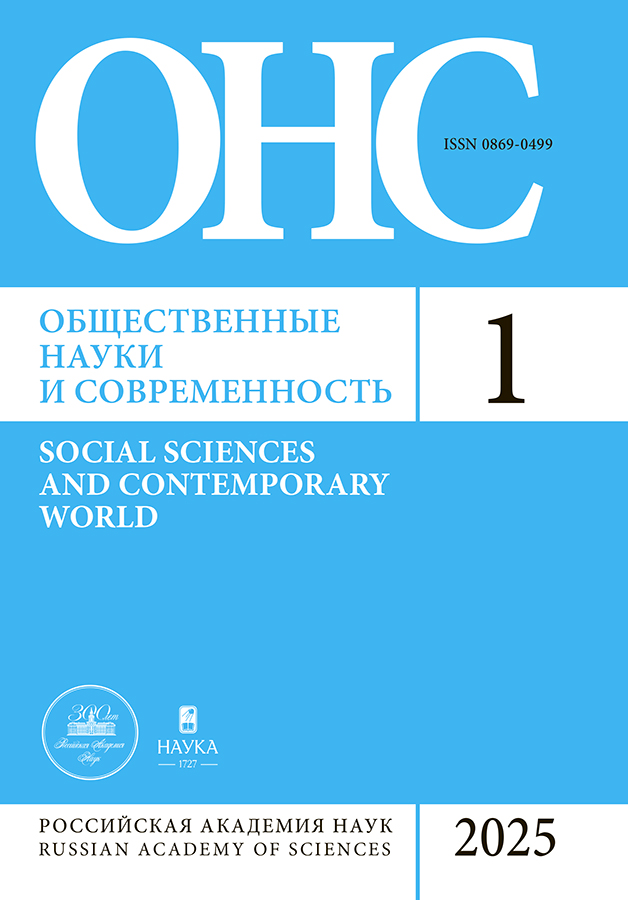Germany in the Formats for Resolving Conflicts in Asia and Africa
- Autores: Trunov P.O.1
-
Afiliações:
- Institute of Scientific Information for Social Sciences of the Russian Academy of Sciences
- Edição: Nº 1 (2025)
- Páginas: 67-80
- Seção: International relations
- URL: https://cardiosomatics.ru/0869-0499/article/view/691690
- DOI: https://doi.org/10.31857/S0869049925010056
- EDN: https://elibrary.ru/BIHNMJ
- ID: 691690
Citar
Texto integral
Resumo
The focus of the study is on the experience of Germany’s participation in negotiations on the settlement and prevention of armed conflicts in the Near and Middle East, in Africa north of the equator. Comparative analysis, provisions of theories of conflict resolution and securitization are used. The dynamics of the Bonn process on Afghanistan are traced, as well as the evolution of the approach of official Berlin to the use of the «European trio» in the negotiations on the Agreement on a comprehensive plan of action with Iran. The contribution of Germany to the work of the Friends of Syria Group and the Small Group on Syria is shown in conjunction with attempts to advance the interests of the moderate opposition. The launch and difficulties of the Berlin Conference on Libya are considered. The reasons of the failures of German diplomacy, first of all FRG`s attempts to combine the goal of resolution of conflicts with the tasks of “containing” system opponents.
Palavras-chave
Sobre autores
Philip Trunov
Institute of Scientific Information for Social Sciences of the Russian Academy of Sciences
Autor responsável pela correspondência
Email: 1trunov@mail.ru
ORCID ID: 0000-0001-7092-4864
Candidate of Sciences (Political Sciences), Leading Researcher
Rússia, 51/21, Nakhimovsky Ave., Moscow, 117418Bibliografia
- Bratersky M.V. (2024) The World of Fragmentation is Changing the World of Globalization. Aktual’nye problemy Evropy, no. 1, pp. 18–41. https://doi.org/10.31249/ape/2024.01.02 (In Russ.)
- Novikova O.N. (2022) Britain’s Fourth Afghan War. Aktual’nye problemy Evropy, no. 4, pp. 213–233. https://doi.org/10.31249/ape/2022.04.09 (In Russ.)
- Stepanova E.A. (2023) Ceasefires as a Part of War, Peace Process, or a “No Peace, No War” Format. Mezhdunarodnye processy, no. 1, pp. 45–74. https://doi.org/10.17994/IT.2023.21.1.72.6 (In Russ.)
- Entina E.G. (2024) Serbian foreign policy: challenges and perception. Aktual’nye problemy Evropy, no. 2, pp. 185–201. https://doi.org/10.31249/ape/2024.02.10 (In Russ.)
- Buzan B., Waever O., de Wilde J. (1998) Security: A New Framework for Analysis. Boulder: Lynne Rienner Publishers. 239 p.
- Glatz R., Kaim M. (2020) Mandat verlängern – Abzug vorbereiten // SWP-Aktuell, no. 18, pp. 1–4. https://doi.org/10.18449/2020A18 (In Germ.)
- Leemhuis R. (2018) Iran’s Destructive Regional Policy: an Underrated Problem. Federal Academy of Security Policy. Security Policy Working Paper, no. 27, pp. 1–5.
- Plato A. (2015) The End of the Cold War? Bush, Kohl, Gorbachev and the Reunification of Germany. London: Palgrave Macmillan. 454 p.
- Tabrizi A.B., Coville T., Jalilvand D.R. (2018) Better Together: Brexit, the E3, and the Future of Europe’s Approach towards Iran. Berlin: Friedrich Ebert Stiftung. 7 p.
- Tull M. (2023) VN-Krisenmanagement in Mali // SWP-Aktuell, no. 22, pp. 1–5. https://doi.org/10.18449/2023A22 (In Germ.)
Arquivos suplementares










